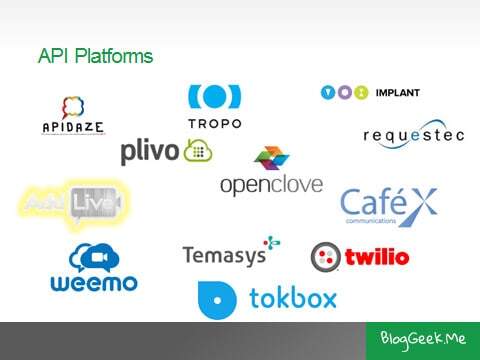Place your bets: We’re starting our spring sale, and we have a few WebRTC API Platforms for you to choose from.

AddLive, taken out of the market
There have been 5 distinct WebRTC acquisitions so far. Two of them were of WebRTC API Platforms:
- Telefonica acquired TokBox. Purpose? Market share, technology, business model. Essentially, preserving and expanding on what TokBox had already
- Snapchat acquired AddLive. Purpose? expertise, infrastructure. It was about buying the tech and ditching the customers and business model (not yet, but we will get there)
As Chris notes in his post, there were rumors of other suiters for AddLive:
For months, rumor has circulated that Addlive was about to be acquired. My understanding a bidding war ensued with the likes of Cisco, Citrix, Logmein and others.
AddLive’s acquisition is still fresh. A month old. What happened since is REALLY interesting.
- Temasys goes off and releases an open source plugin for IE and Safari
- OpenClove gives its platform for FREE on HTML5, iOS and Android (when you use 1:1 video calls) – more on this new service called FreeMAD at a future post
What is going on here? Philanthropy in our midst?
By my count, there are over 20 different WebRTC API Platforms out there. Some consider themselves platforms while I don’t. Others are still in early development phases. The API space for WebRTC is becoming a tad crowded.
This makes the selection process pretty hard for potential customers, and it also makes the competition between platforms a fierce one. The larger customers, as it seems, aren’t looking to be a customer but rather the lord of the house – they want to acquire the whole shebang and get it off the market to use it internally. That’s what Snapchat has done.
On the other side, the platform vendors want to be acquired, and to get a premium price for their efforts. Best way to get there? On board customers and get to millions of video calls a month. Best way to do that? Assert one’s technological advantage. Offer a low cost service – or a free one. Which is exactly how Temasys and OpenClove have opted doing.
They aren’t alone out there – my report covers 13 vendors (now 12, since AddLive got acquired; with 4 new candidates for an upcoming update). Which one will be the next to get acquired?
I have no clue.
Why is it important?
- This situation puts us in a “buyers beware” market. Companies in need of communications via WebRTC now need to think about the long term existence of the vendors they plan relying on. And not because this is true for every vendor, but because there’s an acquisition frenzy in this specific space
- Now that Temasys and OpenClove revealed their next move, it will be interesting to see how other WebRTC API Platform vendors react
- These free propositions from WebRTC platform vendors can easily backfire:
- Customers opting for free and never migrating to paid service take their toll on a vendor (hosting costs, support, focus, etc)
- Free technologies such as generic plugins can easily be used instead of opting for a WebRTC platform vendor. What happens if someone decides to release mobile SDKs with “pure” WebRTC APIs for free?

What do you think about this:
http://www.linuxjournal.com/content/togetherjs?utm_source=feedburner&utm_medium=feed&utm_campaign=Feed%3A+linuxjournalcom+%28Linux+Journal+-+The+Original+Magazine+of+the+Linux+Community%29
It is using WebRTC for audio chat, without exposing that loudly:
https://github.com/mozilla/togetherjs/wiki/About-Audio-Chat-and-WebRTC
So, it’s just as you have written about HOW the WebRTC is a game changer: it should not be the product per-se but rather an integral (and very important) part of the future-minded applications. I agree with that very much.
Did Priologic’s EasyRTC fall off your chart Tsahi?
Doug,
There are so many platforms to count that even selecting the one to acquire isn’t easy 🙂
I would agree that doing business with a company seeking a short-term exit is a risky proposition. I can assure you that Weemo is not focused on being acquired. We are in this for the long haul, and our focus is exclusively on customer success. This doesn’t mean that if we received an unsolicited offer far exceeding market value that we wouldn’t consider it, but I think any company would do that (WebRTC or not).
Paul,
Wisely said. The only problem is that this is the stance all other vendors will be taking. And the issue isn’t with the vendors but rather the market and its needs. In a market where there are many buyers – not of the service but rather the whole vendor – there is risk for those looking for a service. A greater risk than commonly associated with paying for a service.
That said – I am all for API platforms. I think they are the way forward.